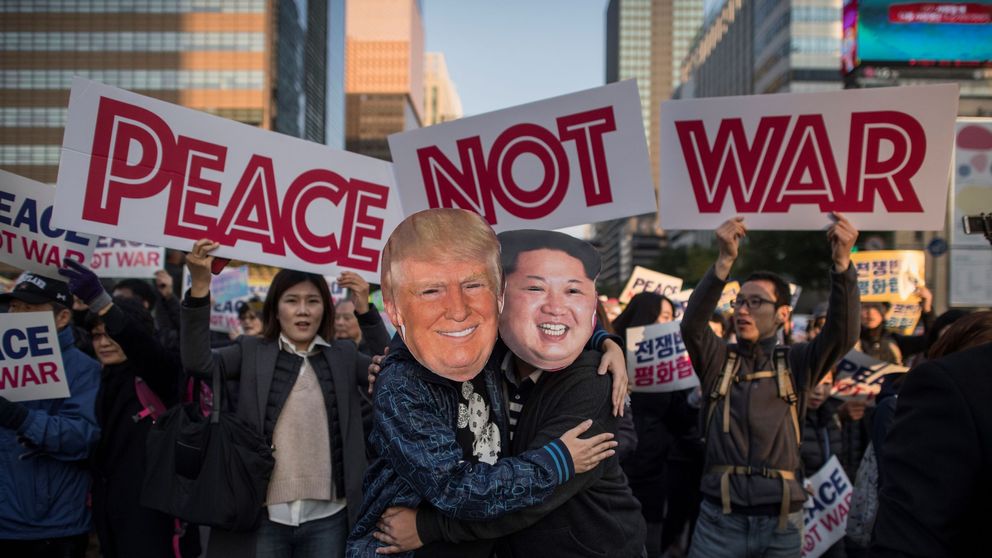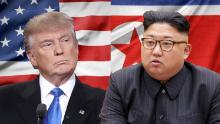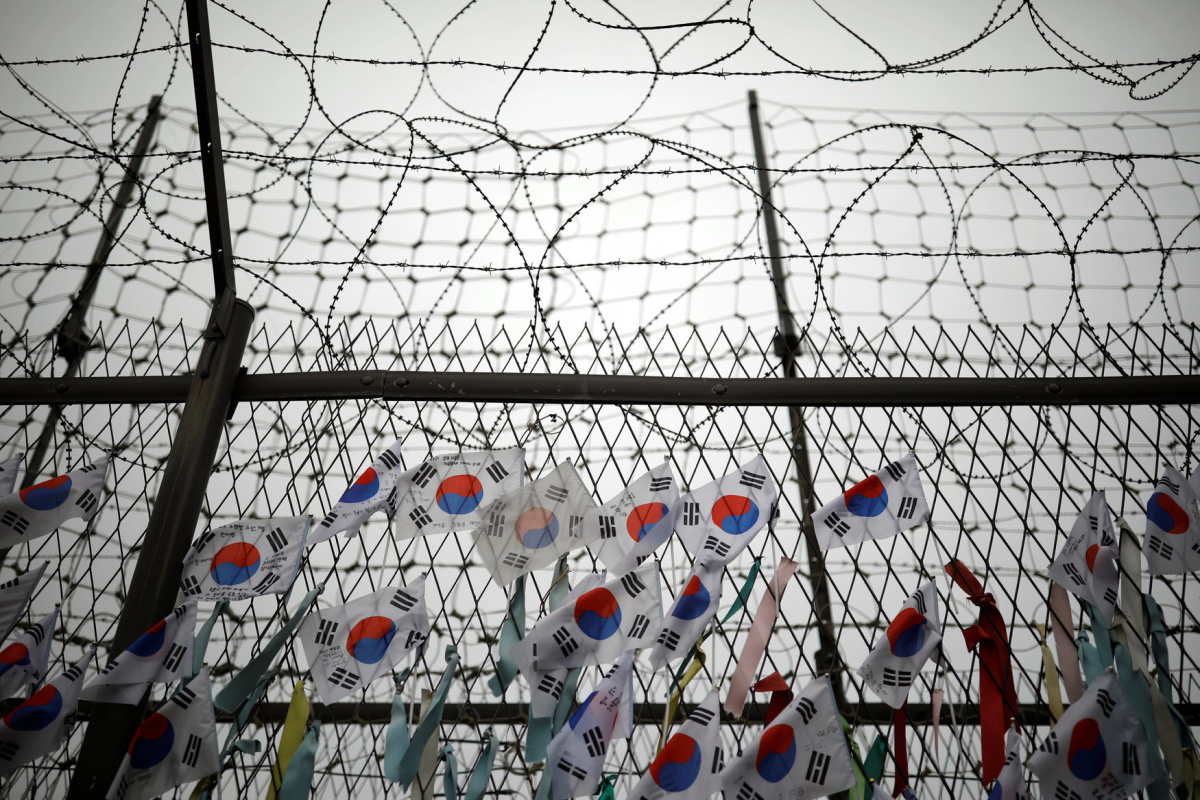North Korea
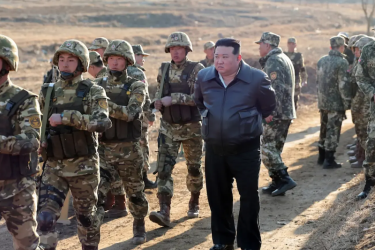
Why is North Korea helping Russia’s war on Ukraine?
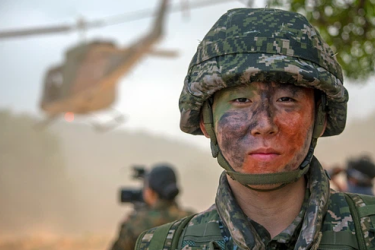
North and South Korea at a turning point after 70 years
Karen Yamanaka — The situation on the Korean Peninsula is at its most dangerous since 1950.
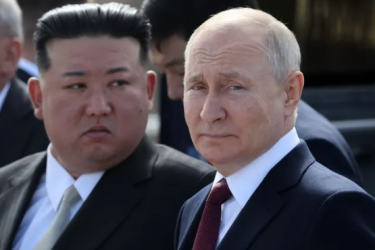
Russian-North Korea summit: Fruitless 'joint struggle' between nuclear states
Why North Korea developed nuclear bombs

Behind the crisis: US tightens chokehold on North Korea

US and South Korean soldiers take part in joint military exercises in Pohang, South Korea.
By David Whitehouse
April 22, 2013 -- Socialist Worker (USA) -- In the 60 years since the end of the Korean War, US policy toward North Korea has fluctuated between the options of "containment" and "rollback".
Sometimes, the policy has shifted in the course of one presidency. Bill Clinton and George W. Bush both started out as advocates of rollback -- regime change, either by military force or by provoking an internal collapse -- but ended as caretakers of containment.
Barack Obama -- who campaigned for the White House in 2008 on a promise to conduct direct talks with North Korea, in contrast to the belligerent rhetoric of the Bush years -- seems to have followed an opposite trajectory since his first months in office. Though you wouldn't know it to judge from the US media, this aggressive posture in Washington is a driving factor in the escalating tensions that have landed the Korean conflict on the front pages in recent weeks.
US imperialist aggression in the early 21st century
Washington has reactivated the US Navy’s 4th Fleet to ensure US power projection over the Caribbean, Central and South America.
[This talk was presented at the regional “socialism conference” was held in Manila from November 27 to 28, 2010. The conference was organised by the socialist Partido Lakas ng Masa (Party of the Labouring Masses) and the socialist-feminist regional network Transform Asia.]
By Rasti Delizo
Martin Hart-Landsberg: What’s happening on the Korean Peninsula?
By Martin Hart-Landsberg
December 31, 2010 -- Reports from the Economic Front -- What’s happening on the Korean peninsula? If you read the press or listen to the talking heads, your best guess would be that an insane North Korean regime is willing to risk war to manage its own internal political tensions. This conclusion would be hard to avoid because the media rarely provide any historical context or alternative explanations for North Korean actions.
For example, much has been said about the March 2010 (alleged) North Korean torpedo attack on the Cheonan (a South Korean naval vessel) near Baengnyeong Island, and the November 2010 North Korean artillery attack on Yeonpyeong Island (which houses a South Korean military base).
The conventional wisdom is that both attacks were motivated by North Korean elite efforts to smooth the leadership transition underway in their country. The take away: North Korea is an out-of-control country, definitely not to be trusted or engaged in negotiations.
But is that an adequate explanation for these events? Before examining the facts surrounding them, let’s introduce a bit of history. Take a look at the map below, which includes both Baengnyeong and Yeonpyeong Islands.
